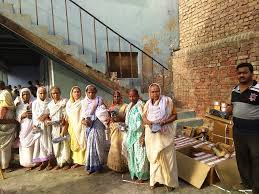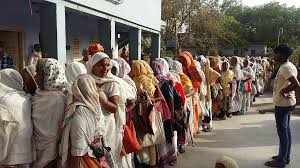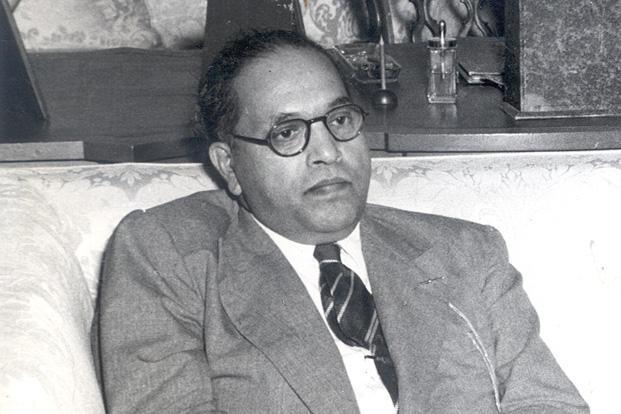Rashmi Chakravarty
The Centre and State governments have put in an undeniable amount of efforts in the field of education, from including the Happiness Curriculum in schools to extending primary education and secondary education in rural schools, to improve the infrastructure and teaching staff – the Government is doing pretty well.
Education is considered the backbone of any society, especially of a society which intends to use it as a weapon to counter social evils and long-standing prejudicial practices and attitudes. Yes, it’s the Indian society which is being talked of in this particular context.
The hailed Indian society which has birthed revered God-men and women, saints and intellectuals, has also been witness to innumerable societal evil practices like caste system, child marriages, dowry-deaths, sati-pratha, and untouchability among several others. Many of these age-old practices still linger on, without any end in near sight. Regressive practices which began in times as old as the medieval ages like the practice of caste-system continue to plague our society. Several rulers and several governments changed and tried in their own varied ways to eliminate these practices, but could not achieve the end goal.
It’s not to say that no success has been achieved with regards to the elimination of these evils. For instance, Hindu reformist societies and a number of reformers like Iswarchand Vidyasagar and Raja Rammohun Roy, along with the support of the British administration managed to eradicate sati-pratha, or the (forced or at times consensual) immolation of widows post the deaths of their husbands and widow-remarriage. While there were and are several attempts to do away with the horrific practice of child-marriage, it hasn’t perished altogether, but has come down to a great extent as compared to before.
An Example Of The Caste-System:
A similar trajectory can be drawn of the caste-system and the subsumed untouchability within it. The caste-system began several centuries back in India and divided people into occupations on the basis of their birth. According to this, the privileged and the resourceful Brahmin community flourished and gained a social standing, at the same time relegating a large number of people as “Shudras” or “untouchables” on the fringes of the society, based on the kind of work they performed. This irrational and biased segregation of the society took roots in the country and seemed to only sink in deeper. Under the leadership of Dr. B.R. Ambedkar, the community found a voice for helping them gain empowerment and recognition in the society. Ambedkar fought for the rights of the SCs, STs and OBCs and was a strong proponent of the equality of all individuals. The tool he sought for empowering his Dalit brothers and sisters was education; for it is through it alone that he believed that the long marginalised group could claim a space in the society.
But, even after seven decades of Ambedkar’s demise, his dream of a casteless society remains unfulfilled. There have been countless educational reforms as well as those which specifically centred on the Dalit community. Education has been used not only as a weapon for empowering the Dalits, but also women. It is education, which the successive governments believe would reform the society and help towards building a society that doesn’t oppress the marginalised.




Source: Google Images.com
Spotting The Loopholes In Our Education:
But, despite all the education and awareness programmes, crime rates in our society have refused being quelled. Domestic violence, rapes, dowry killings, honour killings, violence against the lower castes, child labour and the like do not seemed to have paid heed to the spreading education.
So, the major question is, have the governing bodies been too overly optimistic, in a sense, unrealistically so, in assessing the impact of education in alleviating social evils? Or is there a major loophole in the education or the education processes?
The question, although an alarming one, is seldom raised. Education is definitely reaching the masses, but isn’t for sure succeeding in bringing down the frightening crime rates. Children are being taught of gender sensitization, but a lot of young boys continue to eve-tease random women on the lanes. ‘Beti Bachao Beti Padhao’ did a good role in creating awareness about the high rates of female foeticide and infanticide and the alarming amount of crimes against women, but didn’t particularly prove effective. Sadly, it sounds now more as a hollow catch-phrase used for gaining vote bank by the party in power.
Education is reaching the minds, but not percolating the mindsets of people. It can very well be said that the very intention of teaching isn’t to change the existing stereotypical mindsets of those being taught. As an example, sex education in India exists for just the sake for it. It does not contain any real and practical teaching that would teach children how to mingle with the other gender, socially and sexually, the DOs and the DON’Ts and most importantly, respecting both the sexes. As a result, the purpose of it is clearly lost. Same is the case with other teachings. There is a wedge between what is taught and what should be taught so as to seep into and alter the rustic thought processes of people.
Teaching and education here are not just in the sense of schooling or tutoring, but also the kind of environment and social settings that a person is exposed to. If a child is taught about gender equality at school, but returns home, only to see his mother or father treating him and his sister in a biased manner, the education that he gained at the school stands nullified.
It all comes back to square one. For the parents to instil healthy values in the child and create an egalitarian environ for him, the parents themselves need to be educated in the first place. Education here, as said earlier, is not just in the bookish sense, but in a holistic one.
As long as the aim of education is to merely render the population “literate”, it loses out on its meaning completely. Education would achieve the end goal, that of eradicating the debased social evils, only when its scope is widened and it sets upon itself to open the minds of individuals and change the way they perceive themselves and others. i.e. as Equals.

Pursuing English Literature from the Lady Shri Ram College, Rashmi gobbles down books and JSTOR PDFs more than food. An opinionated feminist, she is also a blogger at ED Times. Utopia is unachievable, but at least we can make the country liveable for women, and she believes she’ll play a part in it by working for the cause of women. Side note: On any day, she’ll choose chai over
